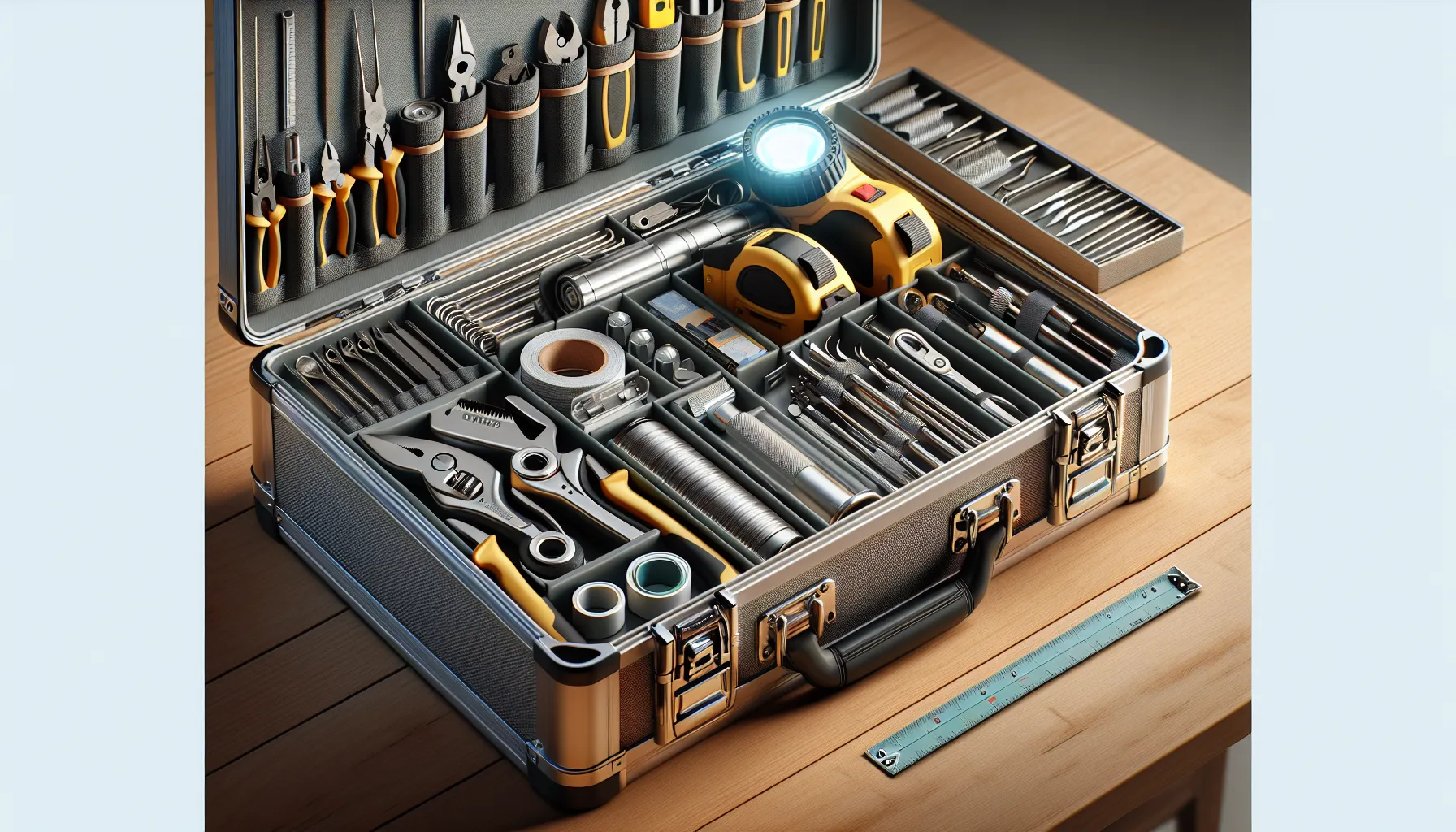What Are Your Tips for a Stress-Free Home Inspection?
Embarking on a home inspection can be a breeze with the right advice, starting with a tip from a licensed PA realtor to create a pre-inspection checklist. From ensuring all areas are accessible to homeowners and inspectors alike, our collection of eight tips will guide you through a smooth home inspection process.
- Create a Pre-Inspection Checklist
- Prepare Property and Communicate
- Check Major Systems First
- Test Safety Alarms Regularly
- Update Safety Devices Timely
- Organize Renovation Documentation
- Service HVAC System Pre-Inspection
- Ensure Access to All Areas
Create a Pre-Inspection Checklist
One effective tip is to create a checklist of common inspection areas, such as HVAC systems, electrical wiring, and plumbing. Before the inspector arrives, ensure easy access to these areas by clearing clutter and making necessary repairs. I once helped a seller who preemptively fixed a leaky faucet and organized their utility room, which left a positive impression on the inspector. This preparation streamlines the inspection process and demonstrates proactive maintenance to potential buyers. It’s like tidying up before a visit from your meticulous aunt—anticipating needs and ensuring everything looks in tip-top shape.
 Jordan DeGusipe
Jordan DeGusipe
Licensed Pa Realtor, RE/MAX Professionals
Prepare Property and Communicate
One effective tip for a stress-free home inspection process, whether you’re buying or selling, is to thoroughly prepare the property in advance. This includes addressing any minor repairs or maintenance issues that could potentially raise concerns during the inspection. By ensuring that the property is in good condition and all systems are functioning properly, you can mitigate surprises and demonstrate to the inspector that the property has been well-maintained.
Additionally, communication is key throughout the inspection process. Stay informed about the inspection schedule and be available to answer any questions the inspector may have. Clear communication between all parties involved, including buyers, sellers, agents, and inspectors, helps to streamline the process and alleviate unnecessary stress. This proactive approach not only facilitates a smoother inspection but also instills confidence in all parties regarding the condition of the property.
 Johan Hajji
Johan Hajji
CEO & Founder, UpperKey
Check Major Systems First
When you start a home inspection, whether you’re buying or selling, here’s a great tip for a stress-free experience: check the big stuff first. Focus on the foundation, plumbing, and electrical systems before worrying about the smaller details. By tackling the major components early on, you’ll spot any significant issues that could affect the property’s overall condition.
 Loren Howard
Loren Howard
Founder, Prime Plus Mortgages
Test Safety Alarms Regularly
To facilitate a stress-free home inspection, it’s crucial to confirm that all smoke detectors and carbon monoxide alarms are in proper working order. These devices play a vital role in ensuring home safety and are often the first items checked by an inspector. It’s important to regularly test these alarms and replace any that aren’t functioning correctly.
Keeping these safety measures up to date reassures the inspector that the home has been well maintained. After ensuring these devices are functional, encourage others to perform regular checks to maintain home safety.
Update Safety Devices Timely
Maintaining up-to-date safety devices is paramount when preparing for a home inspection. Safety devices have expiration dates that many homeowners overlook, but inspectors will certainly check these. It’s wise to replace outdated items well before the inspection date to avoid any unnecessary stress.
By proactively ensuring that all such devices are current, one can demonstrate a commitment to home safety. Ensure you’re clear on when to update these devices to continuously keep your home in top condition.
Organize Renovation Documentation
Before a home inspection, handling paperwork can significantly reduce stress levels. If the home has undergone any renovations or major repairs, having the corresponding permits and documentation readily available is essential. This paperwork acts as a record of compliance with local building codes and regulations.
Showcasing this documentation will evidence a legally sound investment in the property. Make it a priority to organize and present any relevant renovation documentation during the inspection.
Service HVAC System Pre-Inspection
A critical aspect of home maintenance is ensuring the Heating, Ventilation, and Air Conditioning (HVAC) system is running smoothly. It’s advisable to test the system and have it serviced if necessary before a home inspection. A well-maintained HVAC system not only improves air quality but also signals to inspectors that the home has been cared for.
By addressing any issues with the HVAC system beforehand, potential stress during the inspection can be markedly reduced. Consider scheduling regular maintenance to keep your systems in peak condition year-round.
Ensure Access to All Areas
Providing unhindered access to less frequented areas, such as attics and basements, is a wise move prior to a home inspection. These spaces can sometimes be inadvertently cluttered, making it difficult for an inspector to examine them properly. Clearing a path and ensuring accessibility demonstrates transparency and a readiness for the inspection process.
It’s prudent to keep such areas tidy and easily accessible at all times, both for inspections and general home upkeep. Take action today to declutter and create clear access routes in your home.
Submit Your Answer
Would you like to submit an alternate answer to the question, “Share one tip for a stress-free home inspection process, whether you’re buying or selling.”




